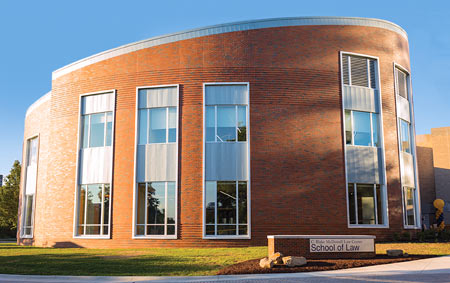UNIVERSITY OF AKRON SCHOOL OF LAW
Akron Law news archive
Years
Months
-
2/19/2018
School of Law named a top school in the nation for trial advocacy
UA has one of the two Ohio law schools to earn this recognition, which places Akron Law among the top third of American Bar Association accredited law schools. -
1/23/2018
UA professors to perform at New York’s Carnegie Hall
Julie Cajigas and Carolyn Dessin both earned degrees in music before choosing careers in communication and law, respectively. -
10/20/2017
Alumnus named to Global Finance Power List
Joe Reece has been named to the list of “The 100 Most Powerful Men and Women in Finance” for 2017 by Worth Magazine. -
10/5/2017
School of Law clinic helps you retrieve your driver’s license
Law students gain valuable experience helping citizens navigate through the system. -
9/28/2017
Law professor Ryan Holte to be nominated to U.S. Court of Federal Claims
The nominee serves as director of UA's Center for Intellectual Property Law and Technology. -
8/29/2017
Longtime mock trial coach honored twice over
Lawrence A. Sutter, III receives posthumous award for advocacy; Mock Trial Fund established in his name. -
4/19/2017
Peters named dean of School of Law
He comes to Akron from the University of Baltimore School of Law, where he is associate dean for faculty scholarship and a professor of law. -
3/14/2017
Two University of Akron programs named among nation’s best
2018 U.S. News & World Report Best Graduate Schools rankings include Part-Time MBA Program and School of Law. -
2/21/2017
Master of Studies in Law introduced at UA
To develop a better understanding of the law in their fields, professionals can pursue a Master of Studies in Law at The University of Akron School of Law. -
1/11/2017
UA professor sheds light on the legacy of Elizabeth Cady Stanton
Law professor Tracy A. Thomas wrote the book she wanted to read about the 19th suffragist and civil rights activist.
Total results: 653

